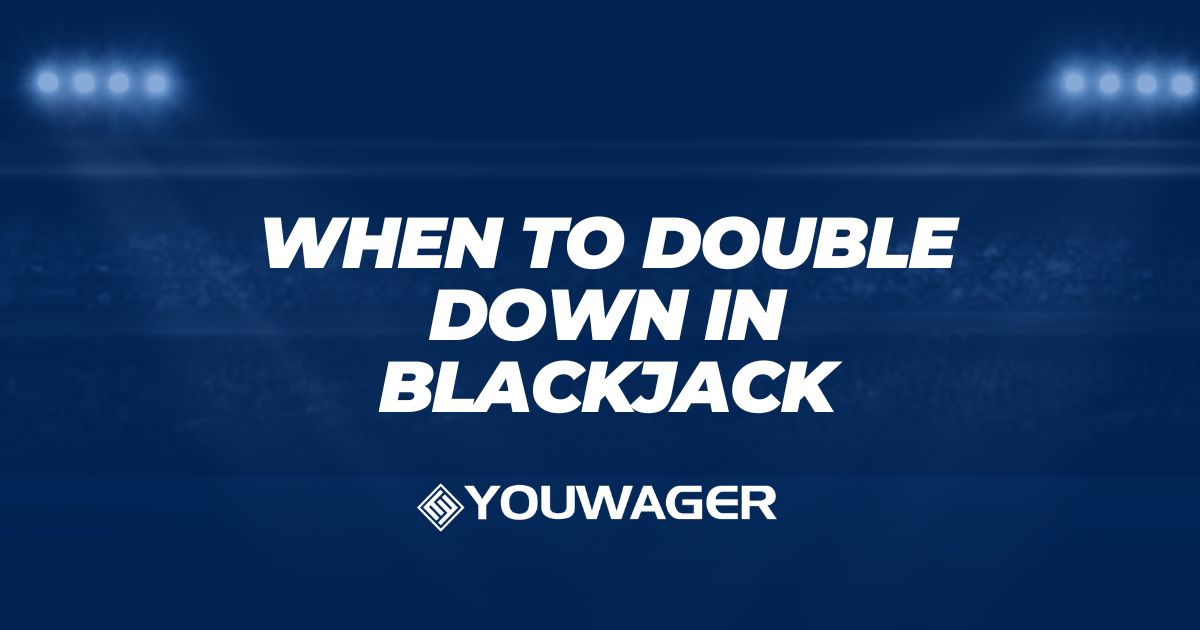When is it appropriate to double down in blackjack? Let us delve further and examine more closely.
Most individuals are aware of the basics of blackjack. To avoid going over, you attempt to come as near to 21 as you can while hitting or standing, and you ultimately want to outscore the dealer. However, there is much more to blackjack than simply these fundamentals, and your odds of winning increase with your level of knowledge.
What Is Doubling Down In Blackjack?
You have the opportunity to double down on practically every blackjack hand. That implies you can double down after the dealer deals you your first two cards. Once you’ve examined your cards, you double your original wager. The dealer then deals you one card, no more, no fewer. Your deck is over when you receive that card, and the dealer proceeds to play and settle bets.
It’s a hazardous bet because you can quadruple your rewards if you obtain the right card and the arithmetic works out. You have now lost twice, though, if that card causes you to lose all of your chips or if the dealer wins even if you didn’t have the best hand.
This is the key to doubling down, which is why it is important for individuals to comprehend the underlying strategy. You won’t be putting yourself in the best position to succeed if you just do it without thinking.
How To Double Down
In a blackjack game, the dealer won’t ask the players aloud whether they want to double down on any given hand. This procedure requires that you notify the dealer. The simplest method to accomplish this is to inform the dealer that you wish to double down before deciding whether to hit, stand, or take any other action. To indicate that you have doubled your bet, you must then move the chip or chips into the table. Recall that the stake for your second wager cannot be greater or lesser than the stake for your first wager.
Nobody can infer or know if you don’t make a signal that you wish to double down. You have an obligation to convey it. Before you ask for extra cards, be sure you clarify what your play is. You won’t be able to go back and claim that you wanted to do it if you don’t adhere to the correct sequence of events. You can then step it up a notch by giving them advance notice.
When Is The Right Time To Double Down?
Double down has advantages and disadvantages, and the house hopes that most players won’t realize this. We’ll bring you up to date so that you can.
When Your Cards Add Up To 11
When the total of your cards is 11, that’s the first situation in which you should think about double down. You’re at a fairly good amount in this instance, and you can’t burst no matter what comes out. Even if it’s not ideal, you still have a chance if you receive a 3 or 4. If you land a 10, your stake doubles, and you’re in great condition. Importantly, you won’t bust on a double down at 11.
When You Have A Soft 16, 17 Or 18
Consider doubling down in the second scenario, which is when you’re on a soft 16, 17, or 18. This indicates that you now hold an ace that has let you to add up to a 16, 17, or 18. In the event that you decide to “bust” after doubling down and hitting once more, your ace could become a 1 rather of an 11. If a king is delivered when you still have 16 and an ace, you still have a chance to win. On the other hand, you have just doubled your wager and increased your chances of winning if you do receive a tiny card.
When You Have A Hard 9 Or 10
In the event that you have a hard 9 or 10, you can also think about doubling down. Here, you’re attempting to hit anything that doubles your stake and yields more for you. In this instance, your stake has doubled and you finish up with roughly 19 or 20. This is the perfect circumstance. The worst-case situation in this situation, though, is that a bust won’t harm you.
Keep in mind that, in all three of these cases, doubling down does not guarantee success (obviously). On the other hand, the best approach brings you closer to winning more frequently when playing blackjack. Your odds of winning are higher the more you understand the technique, particularly as it relates to doubling down. Relying on doubling down at random will not increase your chances of success.
When Not To Double Down
After discussing the situations in which it makes sense to double down, let’s examine a few in which you should never employ this tactic.
The dealer displaying an ace is the first instance. When the dealer has the ace face-up, you are not in a strong position even though it is one of your finest cards in the game of blackjack. It would be better if you didn’t double down.
If you have a hard hand totaling 12 or more, there is another circumstance in which you would prefer not to double down. That means you shouldn’t double down if you have a hand that looks like a 13, 15, or 17. You can burst yourself with one more card, that’s the simple logic. Is it truly worth doubling your wager and assuming that risk? Based on the calculations, it appears that this is a poor choice.
At YouWager.lv you can bet on the different betting types, such as moneyline, spread, and total, and wager either on your favorite team or an undervalued underdog, always with the best and latest lines. Open your account now and receive a 100% bonus on your first cryptocurrency deposit, just click below:


